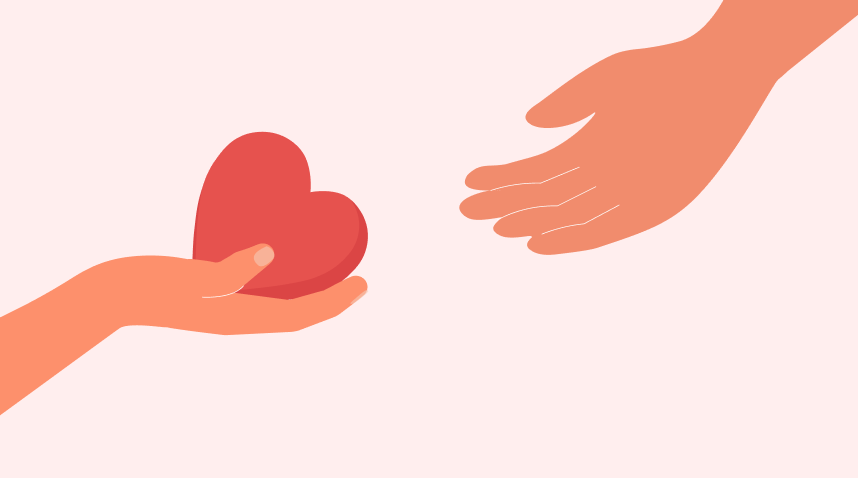TLDR: Losing one’s job is a rite of passage for modern corporate employees. Here’s how Loving-Kindness, Compassion, and Forgiveness can help us ease the pain of job loss.
Layoff news continues to shake the corporate world. Companies do this to control spending and boost profits for shareholders. News of ChatGPT taking over white-collar jobs of those made redundant instilled more fear in people’s minds.
All these remind me of one of the core teachings of Buddhism – everything is impermanent. How do we manage the fear and pain of job loss, if we find ourselves in the firing range of unemployment?
Loving-Kindness (Love) – Be kind to ourselves and others
Our sense of self is often entwined with our job titles. We prioritise our job responsibilities over ourselves. During the COVID-19 pandemic, I delayed my visit home despite the Singapore-Malaysia border re-opening. I stayed back at work because we were understaffed, and I waited for the students to finish their exams.
Is this the practice of the Boddhisattva? Putting the needs of others before myself? Is this self-care if I fail to prioritise my physical, mental, and emotional health?
One blessing of long unemployment is having more time with my family. I spent 5 weeks in Malacca – before, during, and after the 2024 Dragon Year Chinese New Year! I felt like a young kid again, on a long school holiday.
Given a choice, please choose to be kind. When we suffer, we may lash out in anger and frustration, at ourselves and others. Getting messages about job opportunities, words of concern, dinner treats, or even a simple “How are you?” from friends and ex-colleagues can be triggering when we feel anxious and depressed.
I am fortunate to have good friends who care for me. Regardless of my employment status, I can be kind and generous with my words, thoughts, and actions.
“One who refrains from causing harm by way of body, speech or mind, can be called a worthy being.” ~ Dhammapada Verse 391
Embodying the spirit and act of Loving-Kindness and Generosity does not require money.
Focusing on our careers, have we taken the time to take stock of what is important? If you are an employee, you spend time annually discussing your Performance Review with your manager. How about doing a “Review of your Life Goals”, once a year? As we age, our time with our ageing parents may be limited.
Similarly, our friends or even ourselves may struggle with health challenges – we may delay health check-ups. We will stay single if we do not prioritise time to meet potential mates. Focusing on other aspects of our lives, outside of careers, is an act of kindness to ourselves.
Compassion – Be gentle with my pain and suffering

As a counsellor, it was easy to extend compassion toward my clients. Self-compassion, it is a different story. Zen teacher, John Tarrant wrote, It would be a pity to waste a good crisis. This unfortunate job loss presents itself as a “wonderful” opportunity for me to practice self-compassion, again and again.
Self-compassion does not remove the financial pain of losing one’s job or the challenge of paying bills. But, it does reduce the sting of guilt of why I am still jobless after 10+ months and counting.
We have to be wise and prudent in managing our finances to meet our worldly needs. In the Sigalovada Sutta, the Buddha advised a young layman named Sigalaka, to divide his wealth into four parts: “One part he may enjoy at will, two parts he should put to work and the fourth part he should set aside as a reserve in times of need.”
Thankfully, as the Buddha advised, I have saved some money for rainy days. Financial planning and having an emergency fund are important.
While I have yet to master self-compassion, I realized how I have been unkind to myself. The practice of love and compassion is incomplete if we exclude ourselves.
I am reminded of a story from the book, Loving-Kindness – The Art of Revolutionary Happiness (1995) by Sharon Salzberg, a popular Western meditation teacher. Her teacher presented her with a challenge: If she were travelling with a group of friends and strangers, and if they encountered some bandits who demanded that she sacrifice one person to save the others, whom would she choose to “sacrifice”?
She found it hard to justify surrendering anyone. Not her enemy, friends, benefactors, and not even herself because then it would not be a kind act. And that is the right answer, when one’s heart is full of Loving-Kindness and Compassion, we do not exclude anyone, even ourselves.
As highlighted in the Karaniya Mettā Sutta (the Buddha’s Words on Loving-Kindness), one should cherish all living beings (which includes us naturally):
“Just as a mother would protect her son, her only son, with her own life,
So one should develop towards all beings a state of mind without boundaries.”
Karaniya Metta Sutta, Suttanipāta 1.8
Forgiveness – Let go of the guilt and blame game

We have little control over our external work circumstances. Stories of toxic bosses and colleagues, companies that prioritise profits over employees’ well-being, etc. are things that we have little control over.
However, human beings tend to seek meaning in situations. We blame ourselves for “failing” to meet certain standards, instead of accepting that we are just “unlucky” to be laid off.
This is a great opportunity to contemplate the Buddha’s 1st Noble Truth, “There is Suffering.” At one Career Talk, I heard the term – “being delulu is the only solulu” – a Gen Z phrase that means “being delusional is the solution,” in other words, you may achieve your wildest dreams if you focus on it with positive intent. I prefer the Buddha’s approach, where you see the suffering clearly for what it is. Suffering can spur us to understand its nature and the end of its cause – leading us to practice the Noble 8-fold path.
Spending time feeling guilty, blaming ourselves or others, being anxious and depressed, takes time and energy away from finding a new job! We are responsible for taking the right action to be employable again.
There is hope after a layoff and the lessons that come with it. A HOL podcast by Livia Lee – “Being laid off & the life after (Ft Livia, Former Employee @Meta)”, gave me hope and inspiration on what to do during this challenging period. You may also find this article by Livia – “9 things you can do for someone you know who got laid off recently,” on getting the help you need – such as asking for LinkedIn testimonials from ex-colleagues to be useful advice. I am glad I asked for it, and I am elated with the kind words my colleagues shared about my work.
We can also reflect on what is important at our next workplace. It might be the people, the work, or the culture. I find PJ Teh’s article – Applying Buddhist Principles at the Workplace, a useful read.
I am grateful for the wonderful people that I worked with in my past jobs. The people we work with can make a challenging workplace more bearable indeed. If we cannot find helpful people at work, we can be the ones who help others, just like how the Buddha lights the path for us.
I recalled Ajahn Brahm’s story about a person who stepped out of their car, into a pile of dog poo. Instead of bemoaning the now ruined new shoe, the person decided to take the dog poo home and add it to the compost pile to use as fertilizer for his mango tree. It is a good story of making lemonade out of lemons.
I had the good fortune of attending Ajahn Brahmali’s meditation retreat in Batam, Indonesia, in December 2023, thanks to the kindness of a benefactor who gave me his spot at the retreat. I asked Ajahn how to better cope with unemployment. Ajahn reminded me to be kind and compassionate to myself, and that it is not my fault for being unemployed.
Further reflecting on Ajahn’s words, I realised I held on to so much guilt and blamed myself for being jobless. I did my best at my job and supported my colleagues well.
However, my contract was not renewed. I am grateful for this period of unemployment. I reflected on what’s right and wrong in my life, to improve my life holistically.
The heart practices of Loving-Kindness, Compassion, and Forgiveness hold a special place in my heart. Dhamma is everywhere, and the lessons I am learning are useful for my professional and personal life. I am grateful.
Wise Steps:
- Find hobbies that make you happy. You’ve been neglecting your needs, to care for others. It is time to take care of your needs again. I re-discovered my love for writing. What is yours?
- Find support in your family and friends. They can hear you out, encourage you, or even give you financial aid to tide you over during the unemployment.
- Listen to wise elders, friends, mentors, or Sangha members. They will give you a better understanding and balanced view of what you are going through now.
Note: A special shoutout to DhammaWorks by Kinrara Metta Buddhist Society in Malaysia for offering structured workshops on incorporating Dhamma at work. I was lucky to sign up for the DhammaWorks 8 (2021) when it was offered online during the COVID-19 pandemic. The program inspired me to constantly reflect on how the Dhamma can aid us in our work life.


